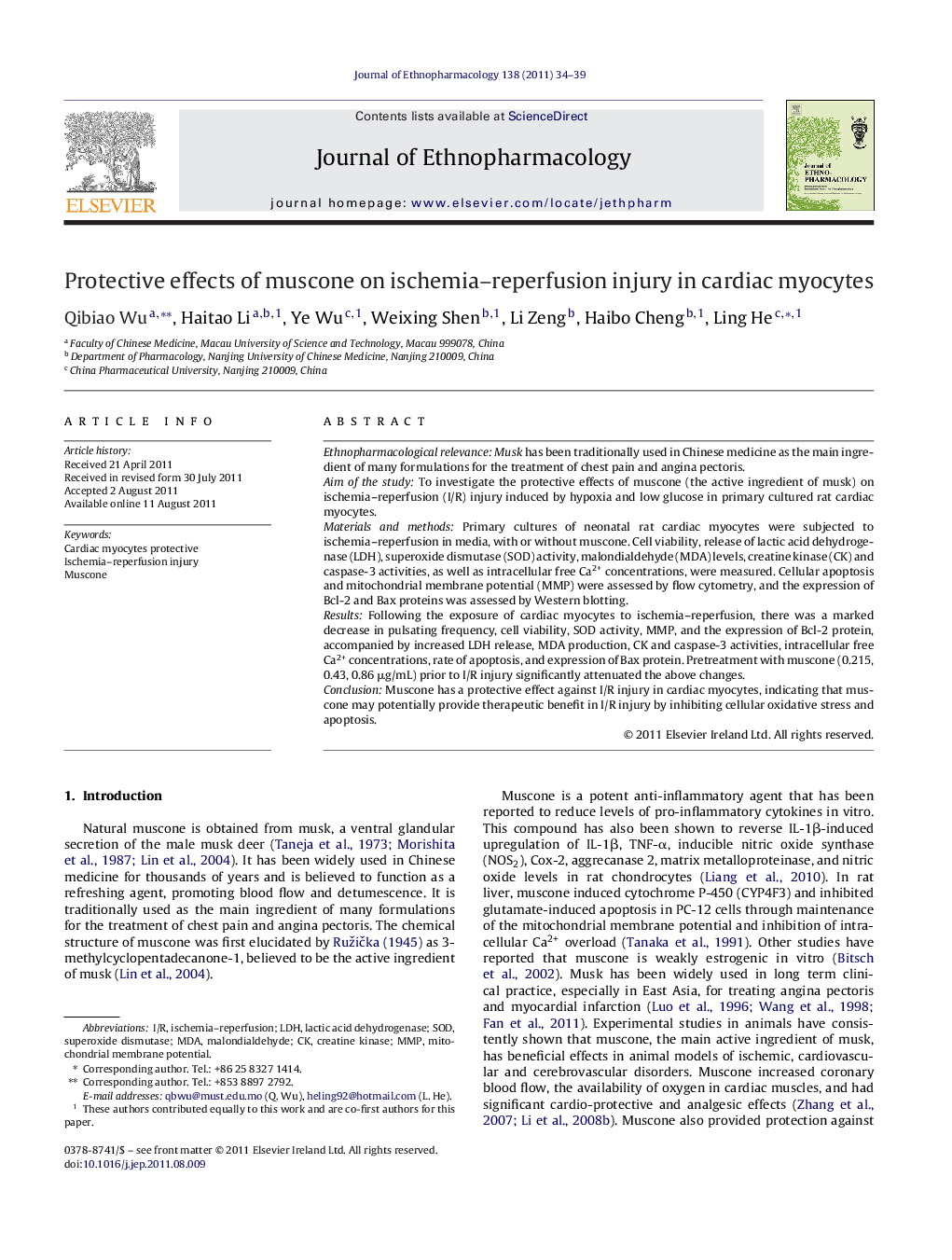| Article ID | Journal | Published Year | Pages | File Type |
|---|---|---|---|---|
| 5839213 | Journal of Ethnopharmacology | 2011 | 6 Pages |
Abstract
Ethnopharmacological relevanceMusk has been traditionally used in Chinese medicine as the main ingredient of many formulations for the treatment of chest pain and angina pectoris.Aim of the studyTo investigate the protective effects of muscone (the active ingredient of musk) on ischemia-reperfusion (I/R) injury induced by hypoxia and low glucose in primary cultured rat cardiac myocytes.Materials and methodsPrimary cultures of neonatal rat cardiac myocytes were subjected to ischemia-reperfusion in media, with or without muscone. Cell viability, release of lactic acid dehydrogenase (LDH), superoxide dismutase (SOD) activity, malondialdehyde (MDA) levels, creatine kinase (CK) and caspase-3 activities, as well as intracellular free Ca2+ concentrations, were measured. Cellular apoptosis and mitochondrial membrane potential (MMP) were assessed by flow cytometry, and the expression of Bcl-2 and Bax proteins was assessed by Western blotting.ResultsFollowing the exposure of cardiac myocytes to ischemia-reperfusion, there was a marked decrease in pulsating frequency, cell viability, SOD activity, MMP, and the expression of Bcl-2 protein, accompanied by increased LDH release, MDA production, CK and caspase-3 activities, intracellular free Ca2+ concentrations, rate of apoptosis, and expression of Bax protein. Pretreatment with muscone (0.215, 0.43, 0.86 μg/mL) prior to I/R injury significantly attenuated the above changes.ConclusionMuscone has a protective effect against I/R injury in cardiac myocytes, indicating that muscone may potentially provide therapeutic benefit in I/R injury by inhibiting cellular oxidative stress and apoptosis.
Keywords
Related Topics
Health Sciences
Pharmacology, Toxicology and Pharmaceutical Science
Pharmacology
Authors
Qibiao Wu, Haitao Li, Ye Wu, Weixing Shen, Li Zeng, Haibo Cheng, Ling He,
